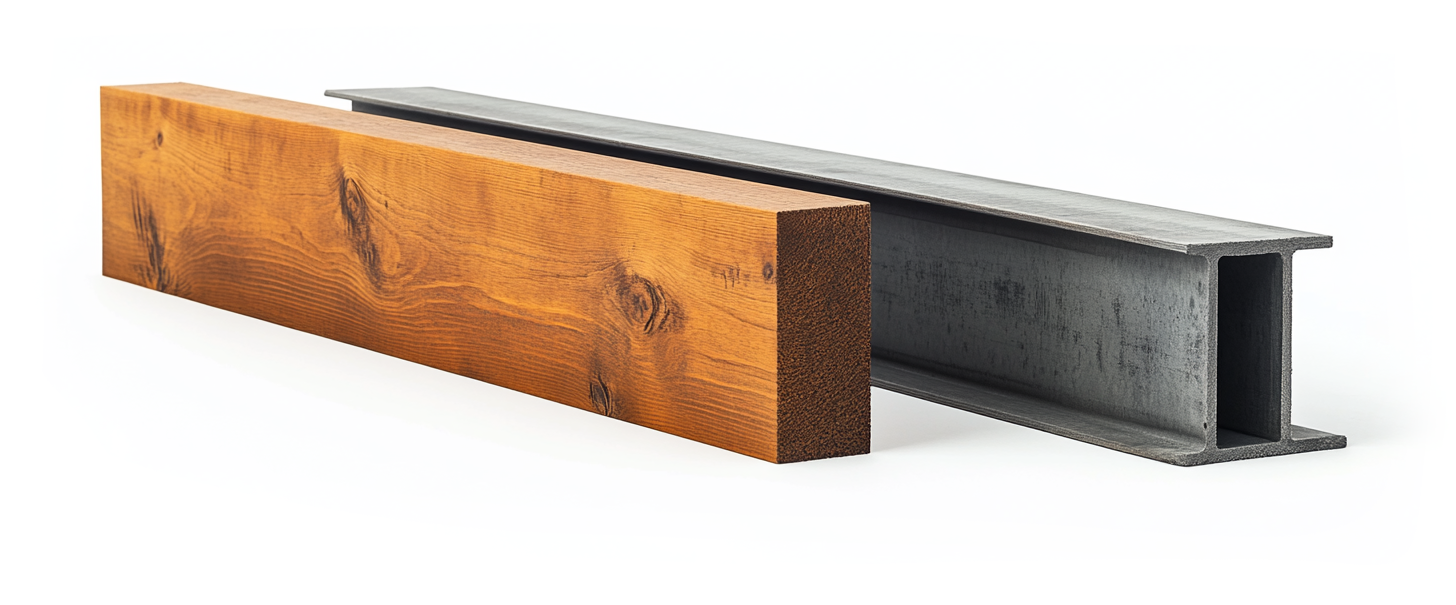TCL #28: InventWood's $15M for Steel-Like Timber, Forge Nano's $40M Battery Boost, Merck's $3.9B SpringWorks Acquisition
Plus: Svante's Pulp Mill Carbon Capture, Celanese's Formaldehyde Reduction, DePoly's Circular Plastics Vision and more.
As the spring of 2025 unfolds, a wave of innovation and investment is reshaping the materials landscape. InventWood's manufacturing facility buzzes with activity as the company prepares for the Q3 launch of SUPERWOOD, a biomaterial engineered to rival steel in strength yet made entirely from wood.
Meanwhile, across the globe, Celanese and Li Auto are putting the finishing touches on an ultra-low emission material that promises to slash formaldehyde emissions by 90% compared to industry standards.
To witness these industry shifts as they unfold and observe how capital and innovation reshape our world, subscribe to the newsletter.
Materials

- InventWood, a company specializing in the production of cellulose-based materials, has secured $15 million in the first close of its Series A funding round, bringing total capital raised to over $50 million. The funding will support the launch of SUPERWOOD, a biomaterial made entirely from wood and engineered to deliver steel-like strength. The company plans to begin commercial shipments from its Maryland manufacturing facility in Q3 2025. The current economic landscape presents a strategic advantage for InventWood's market position, particularly as Canada, which accounts for roughly 85% of all U.S. softwood lumber imports and nearly a quarter of the available domestic supply, faces changing trade conditions. The company's practice of sourcing wood domestically further strengthens its strategic position amid these evolving trade regulations.
- Celanese and Li Auto have announced a collaboration to launch a new ultra-low emission material, Hostaform POM XAP3, aimed at reducing vehicle cabin emissions. The material is set to be introduced in May 2025 and promises to reduce formaldehyde emissions by 90% compared to current industry standards. This marks Celanese's expansion into the new energy vehicle market in China. Li Auto was founded in 2015 and is headquartered in Beijing. Li Auto primarily manufactures hybrid sports utility vehicles (SUVs) and releases its first battery EV in early 2024.
Carbon Capture
Svante, the Canadian carbon capture and removal solutions provider, is advancing a project in collaboration with Mercer International at the Peace River pulp mill in Alberta, Canada. The project has progressed to the Front-end Engineering and Design Phase 2 (FEL-2), focusing on engineering, cost estimation, and risk analysis. It targets biogenic CO2 emissions from sustainably sourced biomass at the pulp mill, supporting the commercial viability of carbon capture technology. CO2 emissions per kg of paper produced range from approximately 1 kg to 3.3 kg. Production methods and material inputs significantly influence emissions.
Hydrogen Production
- OMV and Masdar have signed an agreement to collaborate on the production of green hydrogen, sustainable aviation fuel, and other products in Austria, the UAE, and Central and Northern Europe. Masdar, also known as the Abu Dhabi Future Energy Company, is a state-owned renewable energy company in the UAE. It provides clean energy and sustainable real estate solutions worldwide. OMV is an Austrian multinational integrated oil, gas, and petrochemical company headquartered in Vienna, Austria. OMV was established in 1956 and took responsibility of the nation's oil and gas at that time.
- Hy2gen, a German renewable hydrogen producer, has secured €47 million (around $53 million) from existing shareholders to accelerate its Power-to-X hydrogen projects. Key projects include a 300 MW facility in Canada, an extension of the Atlantis plant in Germany, and a renewable ammonia project in Norway. Hy2gen aims to decarbonize energy-intensive sectors like shipping, aviation, and fertilizers.
Battery
Forge Nano has secured $40 million in new funding to scale U.S. battery manufacturing and commercial semiconductor equipment business. This brings Forge Nano's total capital investment to more than $140 million. The company's battery subsidiary, Forge Battery, makes lithium-ion cells with high energy density using U.S.-sourced materials and received a $100 million contract from the U.S. DOE in January 2025 to expand its manufacturing capabilities in North Carolina.
Recycling
DePoly, a Swiss cleantech company focused on recycling plastic waste, has secured $23 million in new funding. The company will use this to launch a 500-tonne-per-year showcase recycling plant in Monthey, Switzerland. The plant will recycle PET and polyester waste into virgin-quality raw materials. DePoly aims to establish a circular plastics market and plans to scale operations to a commercial plant by 2027. The latest funding increases its total funding to over $30 million across two rounds and grants.
Pharma
- Merck KGaA has acquired SpringWorks Therapeutics for $3.9 billion, aiming to enhance its oncology and rare disease portfolio. The acquisition price is $47 per share in cash, representing a 26% premium over SpringWorks' average stock price before acquisition discussions. SpringWorks has two FDA-approved drugs and additional candidates, with each lead drug potentially reaching peak sales of $1 billion annually. The deal marks Merck's largest acquisition since its $17 billion buyout of Sigma-Aldrich in 2015. Merck's healthcare segment has faced recent challenges, including the discontinuation of certain drug candidates and impending patent expirations on key products. The acquisition is part of Merck's strategy to strengthen its healthcare segment and expand its presence in the U.S. market. SpringWorks was spun out from Pfizer in 2017.
- Abeona Therapeutics has received FDA approval for Zevaskyn, a gene therapy for recessive dystrophic epidermolysis bullosa (RDEB). RDEB is a severe genetic skin disease that leads to chronic wounds affecting a significant portion of the body. In a phase 3 trial, Zevaskyn demonstrated an 81% healing rate for large chronic wounds after six months, compared to 16% for standard care. The therapy utilizes genetically modified skin cells from the patient to produce functional Type VII collagen, which is crucial for skin integrity.

